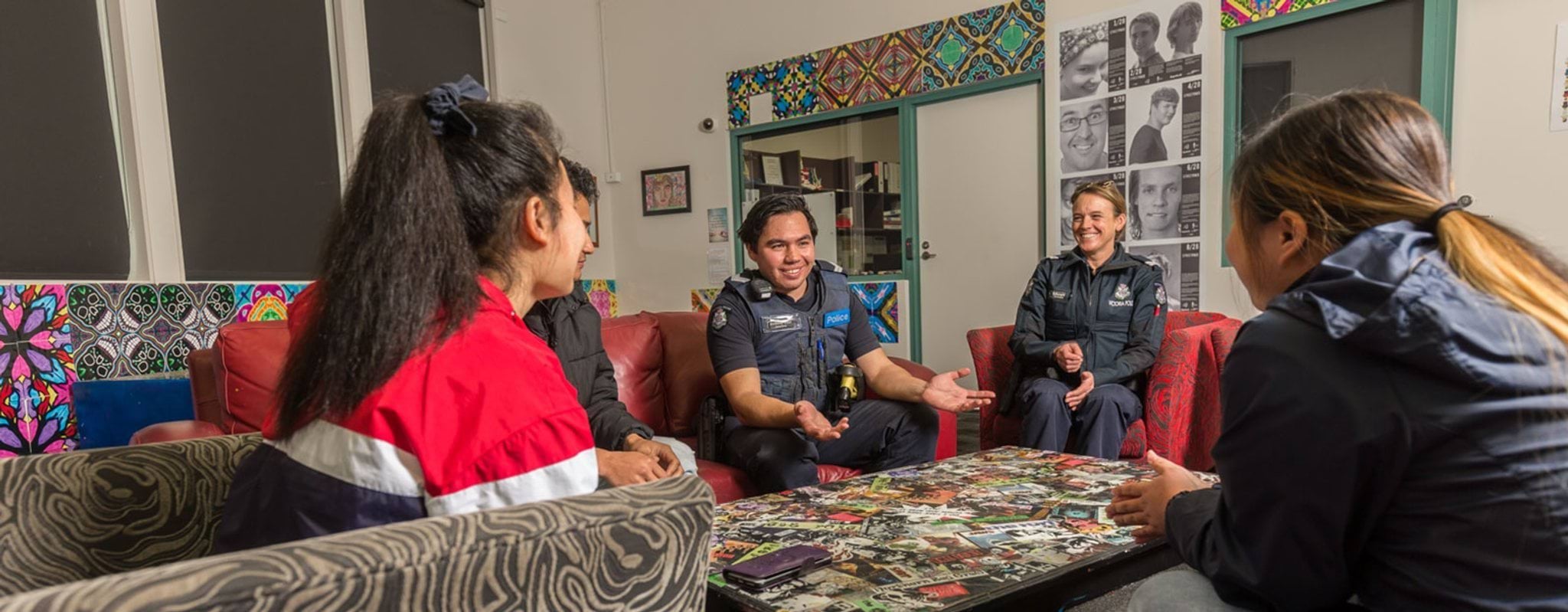There are many exciting and challenging aspects of being a young person and growing up.
We are committed to supporting the safety and wellbeing of children and young people across the state as they learn and grow.
Programs and initiatives
We are involved in a range of initiatives that aim to promote the healthy development of young people.
Schools Engagement Model
The Schools Engagement Model (SEM) provides guidance to support positive engagement between police and schools.
The guidance aims to ensure that any engagement that police have with schools:
- is planned
- is purposeful
- meets the needs of schools, police and the local community.
The SEM acknowledges the potential benefits to our community from these types of engagement with schools.
These benefits include:
- building trust and confidence in police
- supporting schools to promote safety messaging
- identifying opportunities to partner with educators and other services to address determinants of harm and to prevent harm before it occurs.
In some cases, this may not necessarily involve any more or any less engagement between schools and police.
The goal is to better equip police to engage effectively with schools and young people throughout Victoria.
Youth Resource Officers (YROs)
Youth Resource Officers (YROs) are police officers who focus on engaging with young people and supporting their safety and wellbeing.
YROs often work with families, schools, youth services and fellow police officers to:
- promote positive engagement between police and young people, and
- educate young people and their communities on safety issues.
Youth Specialist Officers (YSOs)
Youth Specialist Officers (YSOs) are police officers who focus specifically on offending by young people.
YSOs aim to reduce the harm these offences cause to the community and to the young person.
We recognise that young people involved in offending may have additional vulnerabilities. They may also be victims or be at an increased risk of harm. The specialist knowledge of our YSOs assists our officers to respond more effectively to these issues.
YSOs have the same powers and obligations as other police officers. Where applicable by law, this includes:
- powers of arrest
- mandatory reporting obligations.
YSOs also have a focus on preventing further harm and providing support to young people to help them stop offending.
To do this, YSOs work collaboratively with:
- police
- government agencies
- community service providers
- schools
- families
- young people.
Where necessary, YSOs may attend multidisciplinary meetings with other professionals which support young people who are involved in offending or high-risk behaviours.
The difference between YROs and YSOs
YSOs and YROs often work together to reduce the risk of further offending or harm.
In contrast to YROs who normally focus on proactive engagement and early intervention, YSOs predominantly focus on high-harm offending placing the community at significant risk.
Justice literacy resources
We know the justice system can be confusing.
Justice literacy resources are available to help explain important police processes.
We use these resources with young people and their families to help build trust. These resources will inform community of their rights and obligations during:
- The arrest process
- The bail process
- The remand process
We want young people and their families to know what they can expect from police. If you would like more justice literacy information, please contact your local police station.
Video resources
Watch the below videos to understand what happens during the the arrest process, the bail process, and the remand process.
Privacy and information sharing
Information sharing can play an important role in addressing the risks and needs relevant to a young person. All police officers, and other agencies supporting young people, are subject to strict privacy and information sharing guidelines.
These guidelines relate to the circumstances in which information can be shared and how it must be stored and managed.
We also have protocols and agreements in place with government agencies which support lawful and responsible sharing of information between agencies.
These organisations include:
- the Department of Health and Human Services
- the Department of Justice and Community Safety
- the Department of Education and Training.
Updated
